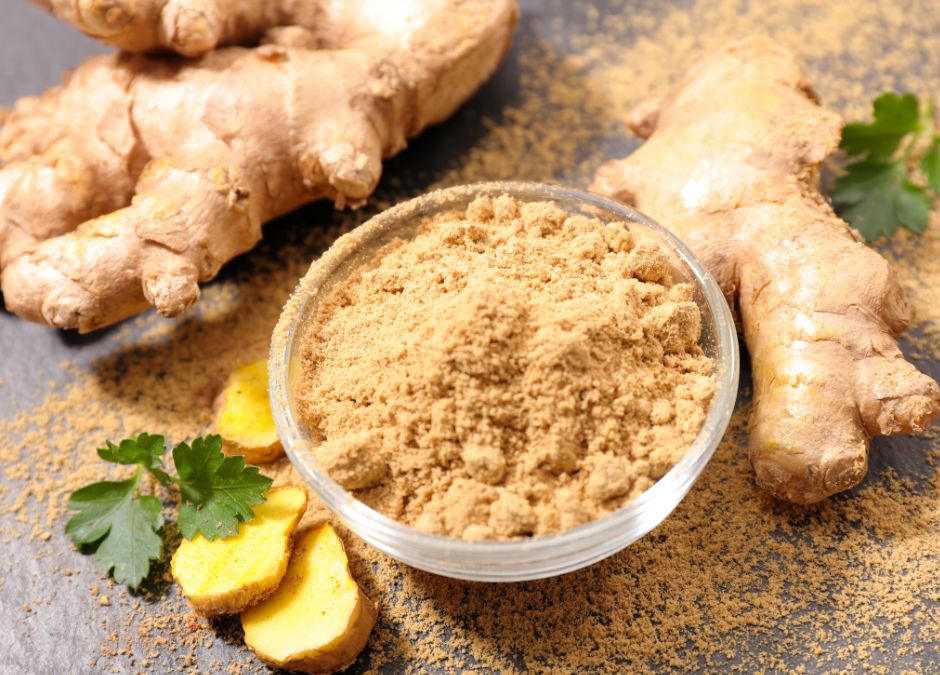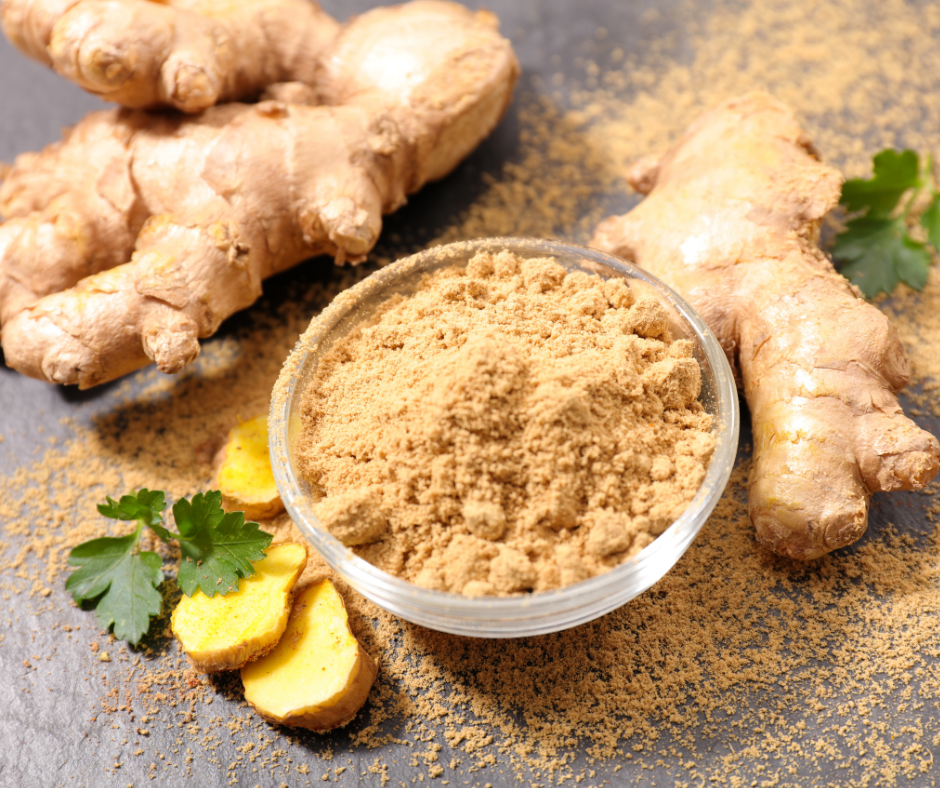
What Can I Eat When I Have A Stomach Ulcer?

Researchers estimate about 1% to 6% of people in the United States have stomach ulcers otherwise called gastric ulcers. (1)
Studies have shown that the prevalence of gastric ulcers increases with age. Most ulcers caused by H. pylori are completely treatable. But untreated stomach ulcers can lead to more serious problems, like internal bleeding and stomach cancer.
What is a Stomach Ulcer?
Stomach ulcers are open sores within the lining of the stomach and they can be extremely painful, especially when eating. They develop when the acids that normally help you to digest and break down food damage the lining of the stomach or the small intestine.
What are the Signs and Symptoms of a Stomach Ulcer?
Signs that you may have a stomach ulcer include nausea, indigestion, heartburn, bloating, burping, loss of appetite and difficulty tolerating eating due to pain. A person may feel full too soon while eating a meal or feel uncomfortably full after eating a meal. As a result of difficulties eating and with digestion, many people reduce their food intake leading to weight loss.
People may not develop symptoms until an ulcer leads to complications.
What Causes Stomach Ulcers?
70% of stomach ulcers is caused by the bacterium Helicobacter pylori, or H. pylori. (2)
Ulcers may also be caused by overuse of painkillers, such as aspirin (Bayer), and other nonsteroidal anti-inflammatories (NSAIDs), such as ibuprofen (Advil, Motrin) or naproxen (Naprosyn).
What Tests are Done to Diagnose a Stomach Ulcer?
An endoscopy involves a small, thin tube with a camera attached being inserted down the throat and into the stomach. It allows your doctor to see and diagnose an ulcer. Your doctor can also take a sample of your stomach lining or run tests of your blood, breath, or stool to test for H. pylori bacteria.
How to Treat Stomach Ulcers Naturally?
To effectively treat stomach ulcers, you need to first address the underlying cause. So if you have a H. pylori infection, your doctor will prescribe antibiotic medications, which may include amoxicillin, tetracycline, clarithromycin or bismuth subsalicylate.
To address stomach ulcers through diet, here are 7 nutrition recommendations:
1. Consume a High Fiber Diet
High-fiber foods can prevent excess stomach acid secretion, which can reduce ulcer pain and protect the stomach lining as the ulcer heals.
Many high-fiber foods are also good sources of polyphenols, plant chemicals that have antioxidant, anti-inflammatory and protective properties that work to improve healing.
2. Consume Broccoli
Broccoli contains sulforaphane, a compound that exhibits anti-H. pylori activity. In one study involving people with H. pylori infection, eating 70 grams of broccoli sprouts per day reduced stomach inflammation and significantly reduced infection. (3)
Check out our delicious vegetarian broccoli stir fry.
3. Consume Foods High in Antioxidants and Flavonoids
If your stomach ulcer is caused by an H. pylori infection, foods that are rich in antioxidants may be beneficial. They can help activate your immune system and help fight the infection. They may also help protect against stomach cancer.
Flavonoids are a phytonutrient found in certain fruits and vegetables, in particular berries can help protect the stomach lining by defending the lining of the stomach and allowing ulcers to heal.
In one laboratory study, extracts of various berries inhibited the growth of H. pylori. (4) There is also some evidence to suggest that unsweetened cranberry juice may be useful in treating H. pylori infection. (5)
Check out this delicious berry smoothie for a high antioxidant breakfast.
4. Olive oil
Some research shows that the fatty acids contained in olive oil can also help treat an H. pylori infection. In one study, people with H. pylori infection took various doses of olive oil every day for 14 days. The results were mixed, but the researchers concluded that olive oil might be moderately effective in treating H. pylori infection. (6)
5. Probiotics and Fermented Foods
Studies have shown that probiotics may be helpful in wiping out H. pylori. Lactobacillus, Bifidobacterium, and Saccharomyces supplements have shown benefits in people with H. pylori ulcers. (7) Consuming fermented foods such as plain Greek yoghurt, kefir, sauerkraut and tempeh are loaded with probiotics to help fight off the H.pylori infection.
6. Raw Honey
Raw pure honey can contain 100’s of compounds and nutrients, including but not limited to polyphenols and antioxidants. Honey is also a powerful antibacterial and has been shown to inhibit H. pylori growth. Manuka honey and Oaktree honey in particular are particularly potent. (8)
Check out our stomach ulcer soothing smoothie which contains raw honey, berries and kefir!
7. Focus on Therapeutic Herbs
Deglycyrrhizinated licorice (taken one hour before meals) and curcumin extract (the active component of turmeric) have shown promise in some ulcer research due to their action against H. pylori. (9,10)
For more information on turmeric and its health benefits including anti-cancer check out this article.
8. Drink Green Tea
Polyphenols are a type of antioxidant found in many plant foods that can be used to manage stomach ulcers. Polyphenols in green tea can help calm inflammation and help to strengthen the tissue that lines the stomach. (11)
Check out our yummy matcha green tea recipe!
9. Consume Foods High in vitamin A
There’s evidence that this nutrient can help shrink stomach ulcers and may also play a role in preventing them. Foods with a good dose of vitamin A include spinach, kale, bell peppers, romaine lettuce, sweet potatoes, carrots, cantaloupe, and beef liver.
Check out our sweet potato and pomegranate salad loaded with antioxidants, fiber and vitamin A.
10. Foods to Avoid When you Have a Stomach Ulcer
Ulcers can often cause acid reflux therefore you want to avoid foods that are acid forming or contribute to acid reflux.
To reduce acid reflux pain, you may want to limit these acid forming foods:
• coffee and other caffeinated beverages
• carbonated beverages
• chocolate
• chilies and hot peppers
• processed foods
• refined grains such as white bread, white pasta and white rice
• foods with a high amount of salt
• deep-fried foods
• acidic foods like citrus and tomatoes
SUMMARY
Stomach ulcers can be extremely painful and problematic but implementing nutrition support can not only help address the underlying cause of the ulcer (such as H. pylori) but can better help manage symptoms and support the healing process.
Give us a call and we can provide you with an individualised program to help you manage and address your stomach ulcer.
Stay happy and healthy
Kylie
References
- [1] Ingram RJM, Ragunath K, Atherton JC. Chapter 56: Peptic ulcer disease. In: Podolsky DK, Camilleri M, Fitz G, et al, eds. Yamada’s Textbook of Gastroenterology. 6th ed. John Wiley & Sons, Ltd; 2016:1032–1077.
- https://www.cochranelibrary.com/cdsr/doi/10.1002/14651858.CD003840.pub5/full
- https://www.ncbi.nlm.nih.gov/pmc/articles/PMC5047973/
- https://pubmed.ncbi.nlm.nih.gov/15543930/
- https://pubmed.ncbi.nlm.nih.gov/18343637/
- https://pubmed.ncbi.nlm.nih.gov/22759331/
- https://pubmed.ncbi.nlm.nih.gov/26051728/
- https://www.ncbi.nlm.nih.gov/pmc/articles/PMC3758027/
- https://www.healthline.com/nutrition/licorice-root
- https://www.wjgnet.com/1007-9327/full/v22/i9/2736.htm
- Muni Raja Lakshmi K, Kiran M, Sai Prasanna K. A review on natural plants for phytochemical constituents and pharmacological activities. J Drug Delivery Ther. 2021;11(2):232-236. doi: 10.22270/jddt.v11i2.4593










